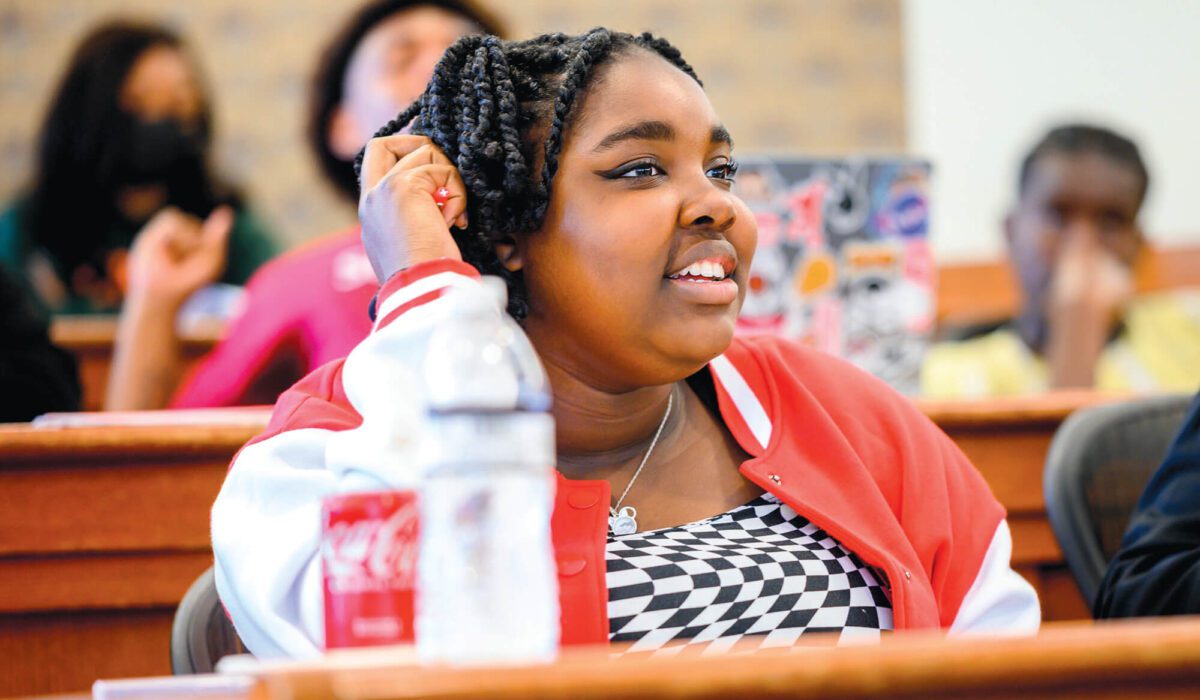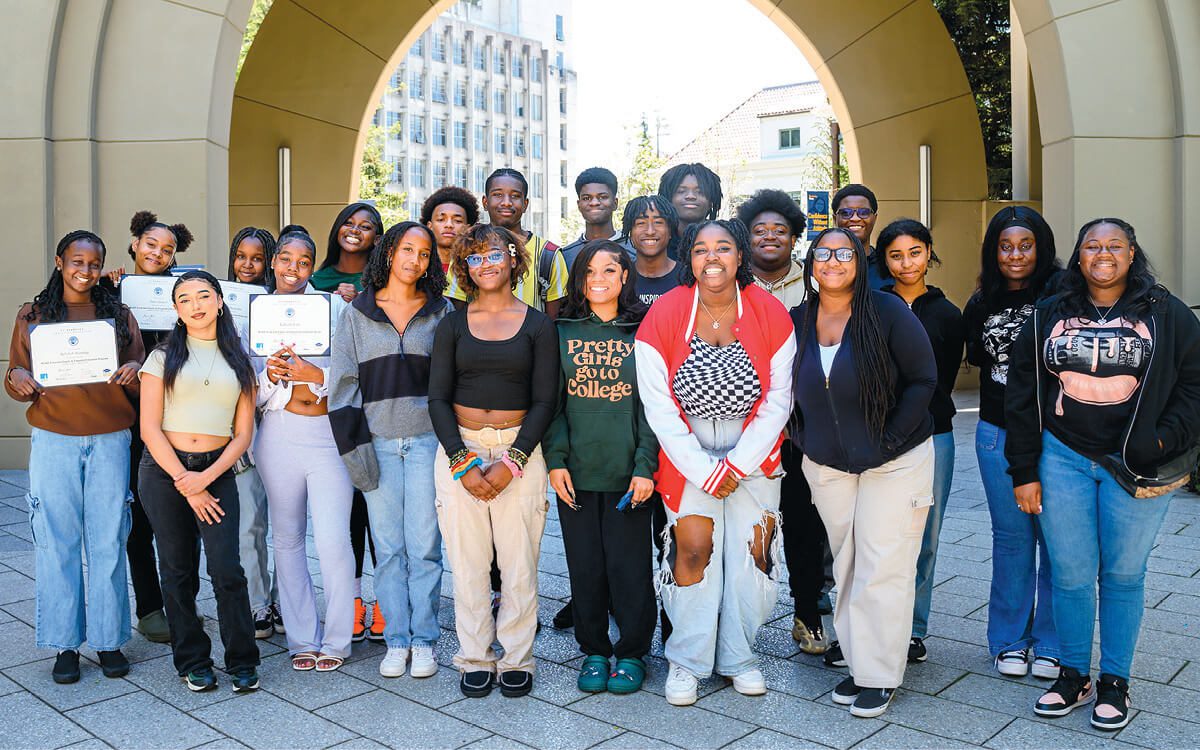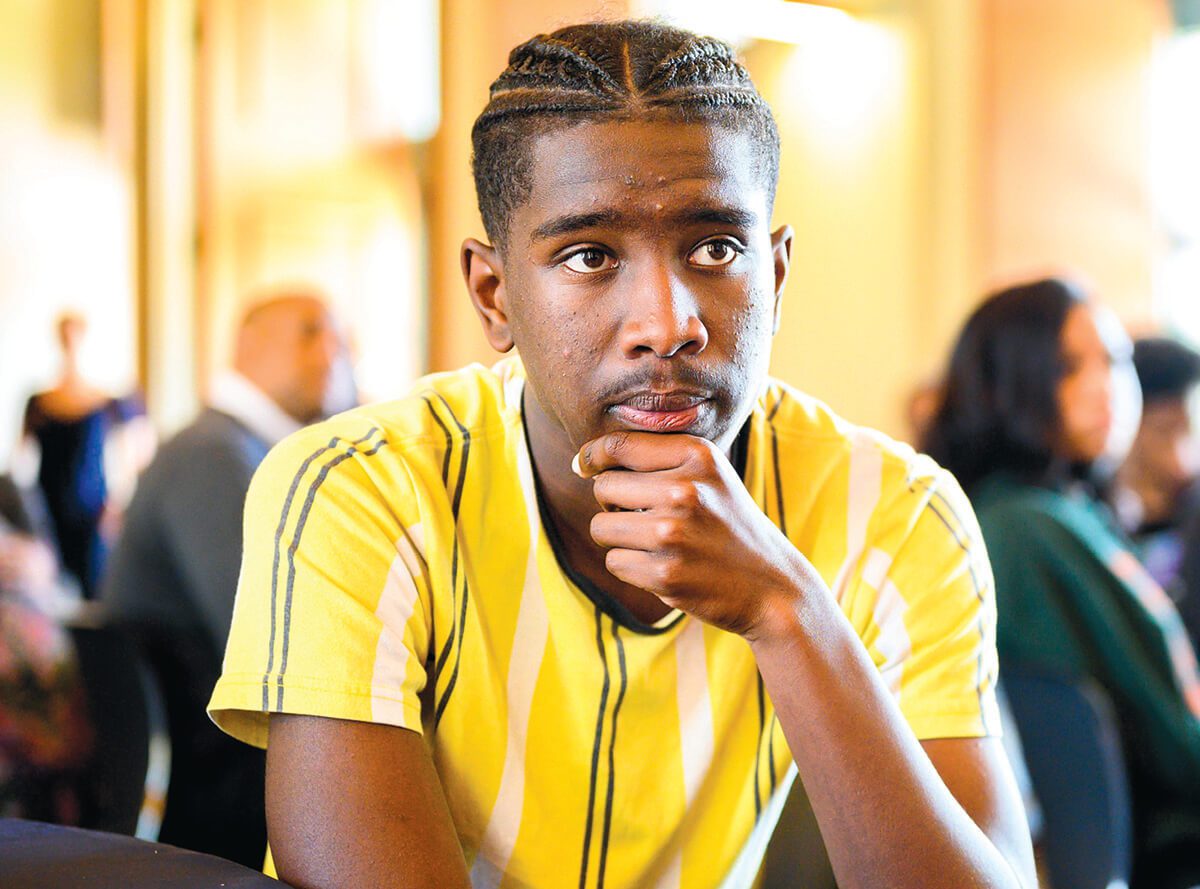Preparing Black teens for financial success

Alexandria Williams had taken economics at Oakland’s Skyline High School, but she didn’t learn much about how to actually budget and manage money. So for eight Saturdays during her senior year, she headed to class at Berkeley Haas, learning not only about personal finance but also about investing, home ownership, and building intergenerational wealth.
Her efforts paid off. Williams (shown above), along with 23 other high school seniors who graduated in May from the Economic Equity and Financial Education Pilot Program, walked away with an $8,000 college scholarship from Pacific Gas and Electric. The students also gained financial knowledge well above the average high school graduate plus a new network of supporters and mentors.
“What I would tell my friends would be to invest as much as you can for however long as you can, because the length of time makes a difference,” says Williams, who is headed to UC Irvine in the fall.

The pilot program, created by PG&E in collaboration with Haas, Berkeley Executive Education, and Mills College at Northeastern University, aims to equip African American high school students from under-resourced Oakland and Bay Area high schools with financial tools for success. It also has a more ambitious goal: to make a dent in the pervasive wealth gap between white and Black and Latinx U.S. households.
According to a 2021 U.S. Federal Reserve study, the average Black and Latinx U.S. household earns about half as much as the average white household and owns only about 15% to 20% as much net wealth.
Jimi Harris, chief of community relations at PG&E, created the program in the wake of George Floyd’s murder, to channel his anger and frustration into something positive, and PG&E committed $500,000 from its community charitable Better Together Giving Program.
Harris’ Morehouse College classmate Jason Miles, founder and managing director of Amenti Capital, worked with Associate Professor Panos N. Patatoukas to co-develop the curriculum. For Patatoukas, the program appealed to his passion for equalizing access to financial education. “Technology has been transforming education in profound ways, but access to financial education still remains within the reach of only a few,” Patatoukas says.
For Harris, the true benefits of the program have yet to be realized. “These kids have demonstrated a tremendous amount of discipline, and they’re investing in themselves, which is the biggest investment they can make,” he says.
